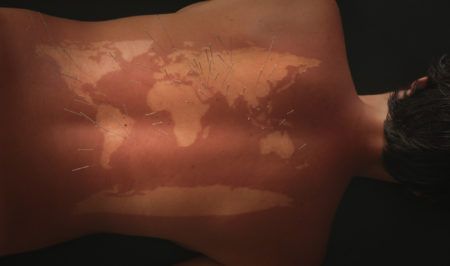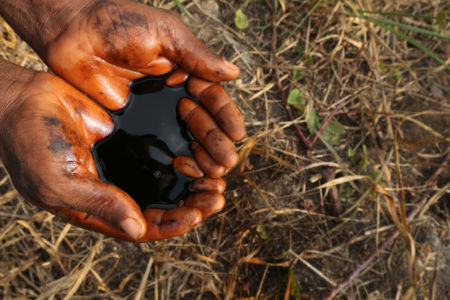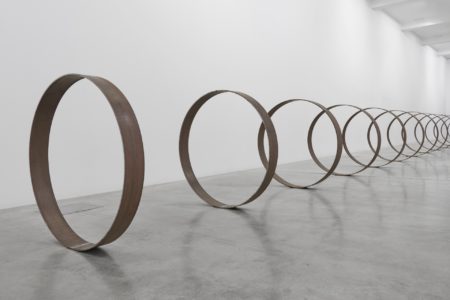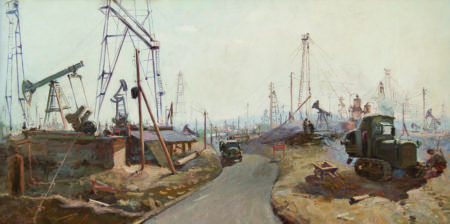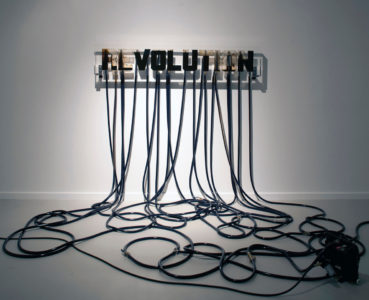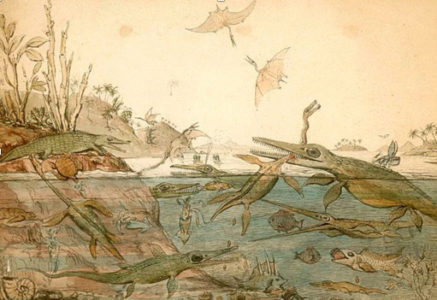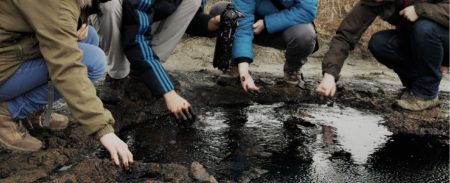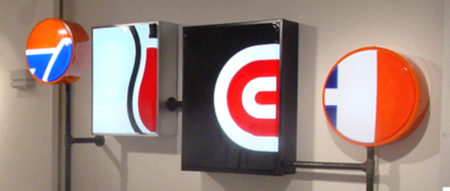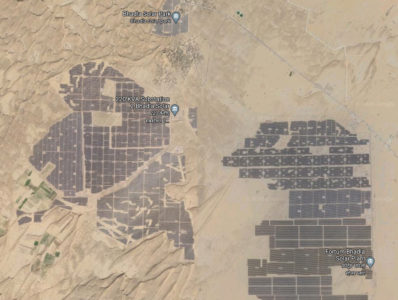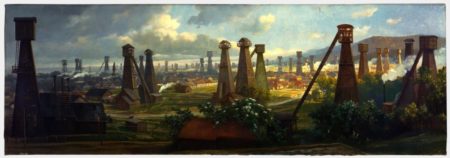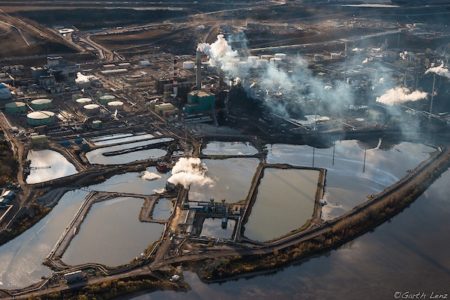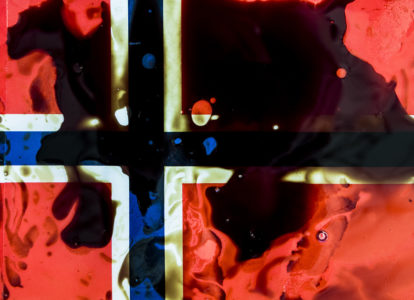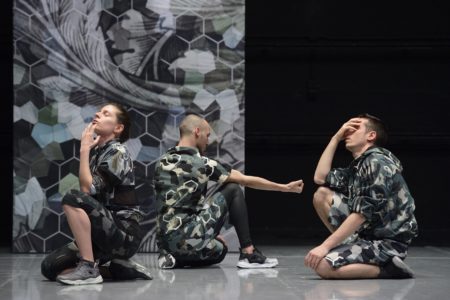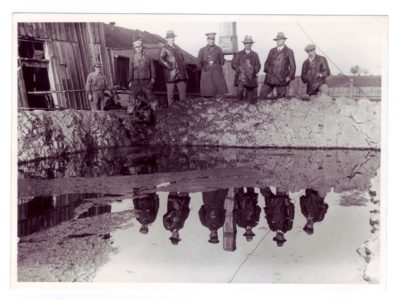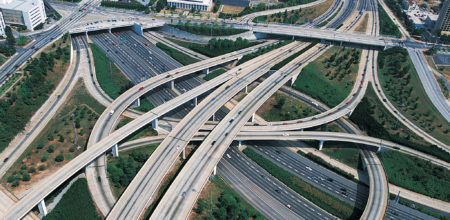Ernst Logar
Brazilian artist Mari Fraga holds a PhD in Arts and Contemporary Culture at Rio de Janeiro State University Arts Department (UERJ, 2016), and is currently professor at Escola de Belas Artes of Federal University of Rio de Janeiro (UFRJ),where she coordinates the research group GAE focused on art and ecology. She presents her work on fossil fuels, human agency and nature from an ecological perspective. Fraga’s research on fossil fuels began by looking into the carbon element, during an artist residency Akiyoshidai International Art Village (AIAV), Japan. Using carbon-based Sumi ink she began to look into the metabolism of living…
Nigerian photographer George Osodi presents the major ongoing photographic project that he initiated 20 years ago: the documentation of the impact of oil on the communities of the Niger Delta, Africa’s most important oil-producing region. Niger Delta communities were told at the outset that oil, which has been extracted from the region since the 1950s, was going to bring prosperity and positive effects. They had no idea then that what they regarded as a commodity was going to turn into a poison in the end. In the late 1990s, searching for a medium to narrate his experience of the damaging…
Rayyane Tabet studied Architecture at the Cooper Union, New York, and Fine Art at University of California, San Diego. He lives in Beirut and San Francisco. Born during the Lebanese Civil War in 1983 and growing up during the reconstruction process, he heard many stories that romanticised the economic stability that the country experienced before the conflict. This led him to eventually embark on a research journey into a unique object of enquiry: the Trans-Arabian Pipeline. In February 1945 the US and Saudi Arabia had struck a deal, whereby Saudi Arabia was going to secure oil for the US and…
Amina Melikova, the director of Icherisheher Museum Centre, discusses the importance of oil for Azerbaijani art during three key historical periods: pre-revolutionary, Soviet, and independent or modern. Since ancient times, Azerbaijan, and especially its capital Baku, has been known throughout the world for its oil. Oil was drilled in Azerbaijan for the first time in the mid-19th century, with investors such as the Nobel brothers and the Rothschilds playing a vital role during this period. By the start of the 20th century, Azerbaijan led world oil production. In the pre-revolutionary period, it was mainly foreign artists who represented the theme…
France-based Russian artist Andrei Molodkin begins his presentation about his work with crude oil by telling us about his army days. Whilst studying he also served in the Soviet Army, convoying missiles through Siberia. In the freezing temperatures Molodkin would rub oil over his body to provide the warmth to keep himself alive. Covered in oil, the soldiers would often stop along their dangerous route, with villagers taking pity on the men and providing them with food. Oil became his source of survival. This military experience is an important referent for Molodkin’s work with oil. “Where does oil come from”…
In her speculative and wide-ranging presentation, professor of Italian and comparative literature Karen Pinkus considers the possibility of post-oil narratives – what might these look like and how would they resemble “oil” narratives or other narratives of our recent past and present. She begins by introducing two oil narratives: Oil! (1926-27) by Upton Sinclair and Petrolio (1992) by Pier Paolo Pasolini. Perhaps if we could identify elements that characterize oil narratives, this could help us to imagine post-oil narratives, and thus the future. Karen Pinkus focuses in her current work on the period which marks the end of coal and…
Professor Janet Stewart has a background in visual culture studies and German and is currently Executive Dean of the Faculty of Arts and Humanities at the University of Durham, UK. Previously based at the University of Aberdeen, her research has engaged with the connection of modernity and its visual culture with petroleum for many years. She organized the Third International Petrocultures Conference in 2018, and is currently involved in the international research project Climaginaries. Janet Stewarts’ research on the relationship of museums and globalisation, which in Aberdeen is shaped by the oil industry, led her to look into how ways…
In the first part of his presentation, “Basics of the Petroleum System: The Petroleum geologist’s playground”, David Misch, Deputy Scientific Head of the Chair of Petroleum Geology at Montanuniversität Leoben, draws our attention to the main elements of the petroleum system: source rock, reservoir rock, seal rock and overburden rock. The processes involved here are trap formation, the generation of petroleum, as well as its migration, accumulation and finally preservation in the subsurface over considerable geological timescales. Misch tells us that the oil accumulated in reservoirs needs to be accessible and that the seal keeps the oil in place, holding…
Russian-born, Paris-based curator and art historian Elena Sorokina presents Petroliana, the exhibition which she curated for the 2007 Moscow Biennale of Contemporary Art, based on her previous exhibition Crude Oil Paintings in 2004 at White Columns, New York. The title of the 2004 exhibition is also that of the work of the first artist she invited to participate, Yevgeniy Fiks, whose project Crude Oil Paintings included a series of letters he received from oil companies rejecting his request for crude oil samples. Elena Sorokina’s exhibitions are intersectional. She contextualises Petroliana by juxtaposing Soviet-era socialist realist visual glorifications of industrialisation and…
Energy and resource economist Johannes Schmidt, associate professor at the Institute for Sustainable Economic Development at the University of Natural Resources and Life Sciences, Vienna, presents his work on reFUEL. This five-year research project, funded by the European Research Council, assesses the role of trade in a future renewable energy world. In his presentation for us, “Going global? Renewable fuel trade and social land-use restrictions in a low-carbon energy system”, Schmidt tells us about his research into land-related impacts of renewables in Austria, Sweden and Brazil. He explains how important the availability of land is, and how the existing infrastructure…
Kunstraum Lakeside, Klagenfurt (AT), presentation and performance, 6 May 2021, 12–8 pm (performance at 6pm) Oil drastically changed the world in the twentieth century. This transformation affected all areas of life, from mass mobility and food production to the application of polymers and plastics in consumer articles such as cosmetics and clothes. However, the omnipresence of oil in everyday life has rarely manifested in the imaginary space of the cultural. Only in the twenty-first century—in face of the depletion of crude oil reserves and the already tangible effects of climate change caused by carbon dioxide emissions—does our dependence on oil…
Bernhard Schmidt is a natural scientist, museum educator and head of the Vienna Technical Museum’s Energy & Mining division since 2012. While he is very much engaged with sustainability and environmental issues, his first job in his role was a redesign of the exhibition on oil & natural gas. This redesign was made possible by a cooperation with OMV Aktiengesellschaft on the project, who were keen to promote a new image for the oil industry. It took one and a half years to develop and opened in 2014. Their research led Bernhard Schmidt and his colleagues to look for potential…
Johannes Frasnelli is an odour perception specialist currently conducting research at the Université du Québec à Trois-Rivières’ Chemosensory Neuroanatomy Lab. His field of research is the three chemical senses: smell, taste and the trigeminal system. These three closely interacting senses are associated with the nose and mouth and dedicated to the detection and neural processing of chemicals in the environment. The chemical senses protect us and also play an important role in pleasure. In order to illustrate the research of the Chemosensory Neuroanatomy Lab, Frasnelli presents the results of an investigation into Parkinson’s disease carried out by one of his…
Elisabeth Dokulil holds a PhD in biochemistry and is a practicing psychotherapist, based in Vienna, Austria. Her reflection on oil was triggered by her puzzlement about why oil was used mostly as a fuel, such as for transport and heating. For Dokulil, this is a narrow use of a powerful resource. Why do we simply burn it? Psychoanalytic theory introduced Dokulil to a Freudian perspective on culture. In his book Civilization and Its Discontents (1930), Freud categorises a person’s instincts into two drives: the Eros drive and the Thanatos drive. While Eros seeks to care, Thanatos seeks only to destroy,…
Cleo Reece was born in Fort McMurray, Alberta, Canada. A Cree Métis activist and filmmaker, she cofounded the Keepers of the Athabasca Watershed Society in 2008 in response to her community’s concerns about water. Keepers of the Athabasca Watershed Society are engaged in pedagogical work towards ecoliteracy. They organize workshops about climate change and educational activities, including a curriculum for a sustainable future for children of up to 12 years old. In 2010, Reece introduced the Healing Walk, which is a means to bring attention to the oil industry and the impact of pollution upon communities. Reece tells us that…
Oliver Ressler deals with alternatives to capitalism, the global economy, migration and resistance. His focus on the climate crisis goes back to his 1996 installation, 100 Years of Greenhouse Effect, inspired by Swedish scientist Svante Arrhenius’ (1859-1927) writings on global warming as well as more recent work on sustainable development. Increasingly interested in the climate movement and its civil disobedience actions, he began to document the protest activities. Everything’s coming together while everything’s falling apart (2016-2020) is a 6-channel video installation focused on direct action and how such protestsare being organized. His work also aims to counteract the dominant media…
Berlin-based artist Kat Válastur presents her 2016 choreography OILinity, which was inspired by her time living in Baku, Azerbaijan, for six months. She discovered that in Baku everything was defined by oil and that her own body was defined by it too. Drawing a parallel between oil consumption and blood, “it was as if blood was consumed by oil”. OILinity reflects on this relationship by metaphorizing oil with black bile. Black bile is produced by our organism and represents melancholia in European thought going back to the Ancient Greek concepts of humours. While we produce bile, the earth produces oil.…
Heather Davis shares some ideas about our relationship with plastic which she theorises in her forthcoming book, Plastic Matter. She argues that while our tangible contact with crude oil is almost non-existent, our relationship with plastic is intimate, as plastic is present in our food and in our clothes, for example. Today, plastic is embedded in our culture – it is everywhere. Micro-plastics are pervasive in our environment. What does it mean to have our planet coated in these molecules? In contrast to Amanda Boetzkes’ research, which focuses on the notion of waste and its relationship with capitalism, Heather’s has…
Benjamin Steininger introduces Erdöl: Ein Atlas der Petromoderne? (Matthes & Seitz, Berlin 2020) , a forthcoming book with 43 essays presenting a broad panopticum of various technologies, geographies and cultural practices connected with and based on oil. One essay in the book is called “Black Mirror”. Chemists investigate the reflection and optical activity of oil, but also cultural theorists are interested in this reflection. Yet what do we see? What can we see? What can we learn about our own subjectivity through oil? It is crucial to turn to the medium itself to address those questions. One tool to open…
Imre Szeman begins his presentation “Oil, Coronavirus and the Promise of Green Futures” by identifying three key notions which underlie his talk about the impact of the COVID-19 pandemic on energy futures: Oil, COVID-19, and Green. He tells us that he will be paying special attention to the narrative of transitioning which has emerged with the advent of the pandemic. Is COVID-19 accelerating the transition to a green and sun-powered world? And if so, how? COVID-19 has created room for some promising developments, hard to miss for anyone concerned with the planet. Yet the message that COVID-19 was a stroke…
- « Previous
- 1
- 2
- 3
- Next »
